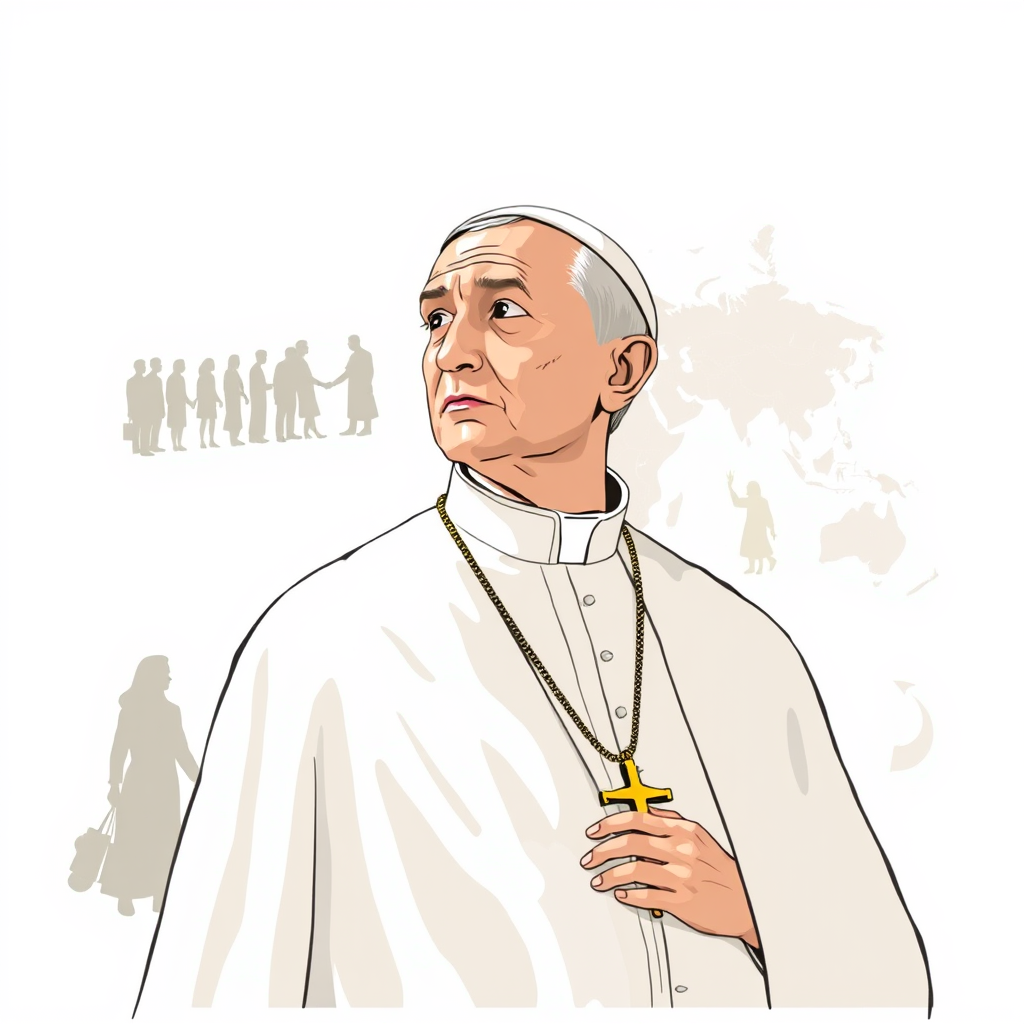The New Pope's Major Challenges Revealed

Pope Leo XIV, born Robert Prevost, has made history as the first American to ascend to the papacy. His election on May 8 marks a significant shift in the global dynamics of the Catholic Church, a transformation that many believed was still decades away. As the improbable becomes reality, Pope Leo XIV now faces the daunting task of guiding the Church and its 1.4 billion followers worldwide, building upon the legacy left by Pope Francis.
Pope Francis, who passed away on April 21 at the age of 88, was renowned for his emphasis on inclusivity, albeit imperfect, and his efforts to globalize the Catholic Church. During his 12-year tenure, Francis made the College of Cardinals more diverse, pushed for greater inclusivity within the Church, and prioritized climate emergencies. However, his leadership was not without challenges, and Pope Leo XIV inherits a complex legacy that will shape his papacy.
As the world watches, the new pope must decide whether to continue Francis’ path or forge a new direction for the Catholic community. One of the most pressing issues is the treatment of LGBTQ+ Catholics. Pope Francis, despite facing backlash from conservative factions, especially in the United States, made significant strides in inclusivity. He supported civil unions, met with LGBTQ+ groups, and famously stated in 2013, ‘Who am I to judge?’ regarding gay individuals seeking the Lord. In 2023, he allowed priests to bless same-sex couples and permitted transgender individuals to be baptized and serve as godparents. These landmark decisions, however, came at a cost, with conservatives and bureaucrats resisting his reforms. Pope Leo XIV now must determine whether to follow Francis’ inclusive path or take a different course. While reports suggest he may be less welcoming to gay Catholics, his future actions will ultimately define his stance.
Another critical issue is the Catholic Church’s contentious history with sexual abuse and cover-ups. Pope Francis initially faced criticism for his inaction but later attempted reforms, acknowledging his own role in the problem and addressing the abuse of nuns by priests and bishops. Pope Leo XIV’s record on this matter is already under scrutiny. While leading the Diocese of Chiclayo, he was accused by the Survivors Network of those Abused by Priests of covering up sexual abuse. His approach to addressing and acting on allegations of abuse will be a key focus of his papacy.
Pope Francis also made strides in advancing women’s roles within the Church, although significant questions remain unanswered. In 2023, he allowed women to vote in a major bishops’ meeting, a reform Pope Leo XIV presided over. However, the debate over whether women can become deacons and eventually priests continues. The new pope will need to address these and other issues related to women’s equality in the Church.
The geographic diversity of the Catholic community has also evolved under Pope Francis. The 2025 conclave was the most diverse in history, reflecting the growing influence of Africa and Asia. Pope Leo XIV’s election as the first American pope, following Francis’ reign as the first Latin American pope, further emphasizes this global shift. Born in Chicago but with ties to South America and Europe, Leo’s international background may help him navigate the Church’s diverse landscape. His work in Peru and influential Vatican post have prepared him for the challenges ahead.
In conclusion, Pope Leo XIV faces a multitude of challenges as he begins his papacy. From addressing the treatment of LGBTQ+ Catholics and the sexual abuse scandal to advancing women’s roles and embracing the Church’s global diversity, his leadership will be crucial in shaping the future of the Catholic Church. The world will be watching to see how he navigates these complex issues and builds upon the legacy of Pope Francis. As the Church continues to evolve, Pope Leo XIV’s decisions will have far-reaching implications for its 1.4 billion followers worldwide.